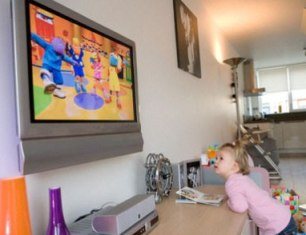Have you ever told your child that it’s time to go somewhere or do something else and their response was either to ignore you or yell at you? There are ways to avoid this and make the transition from activity to activity easy and smooth. In order for your children to feel comfortable and cooperative moving from one activity to the next there are a few things you will need to do. First, children need and love routine – no matter how old they are. If they experience the same basic sequence each and every day, they will simply expect and anticipate a change in activity. For example, if your basic routine with your toddler is to wake up, play, eat, watch TV, get dressed, go out somewhere, come home and eat lunch, go to sleep, wake up after 2 hours, have a snack, do a one-on-one activity with you, play alone for an hour, watch TV, eat dinner, brush teeth, then go to sleep, they will naturally move through their day with ease. They often will remind you when it’s time to go out if you are running a bit late. When I was a teacher I used to write our schedule for the day on the whiteboard and added short bits of information describing exactly what they needed to have ready. Our day always flowed smoothly and the children were calm knowing what to expect. If you have a child three years or older who tends to be a bit anxious or may have autistic tendencies this is a terrific way to help them feel calm and competent that they are able to handle their day. (For younger children, you could use pictures posted on poster board or the fridge instead) The second area to look at is the way in which you tell your child it’s time to move on to the next activity. Yelling from the other room is not a positive or effective way to handle this. A better way is to go to your child a little before you want to move on, sit with them, enter their world, and make a comment such as:
“You sure like your trains, don’t you?” or “What a neat idea you had to build a LEGO house like this” or “I loved that book when I was young”
Then say, in a very excited tone of voice:
“It’s time to get our shoes on to go to the __________(park,store,friend’s house,playgroup) Let’s go!”
Extend your hand towards them or pick them up and give them a big hug then begin talking about where you’re going, who you’ll see, etcetera. This will keep them focused and will build excitement and cooperation. If your child whines, there are other issues going on like hunger, tiredness level, not being used to a routine or not being used to having limits set for them. The technique I suggest for bedtime or leaving a playground is to use the countdown method. Go to your child and say, “Anna, you have 5 minutes and then it’s time for sleepy, sleepy, (or whatever words you want to use)” OR “Sam, you have 5 minutes and then it’s time to go home for lunch”. After this, go to them at 4 mins, 3 mins, 2 mins, 1 min, and then say, “Okay, time to go now.” or “Okay, time for sleepy, sleepy”. The last point I want to make about transitions is this: you must speak in a happy tone, yet a matter-of-fact tone as well. There is no room for soft voices here, no room for reminding and no room for explaining or coercing. You are just stating a fact in a happy voice about what it is that you ARE going to be doing. Do your part by stating excitedly what you will be doing and then carry on. The only thing left to do is to enjoy the time you will be spending with your happy child.
